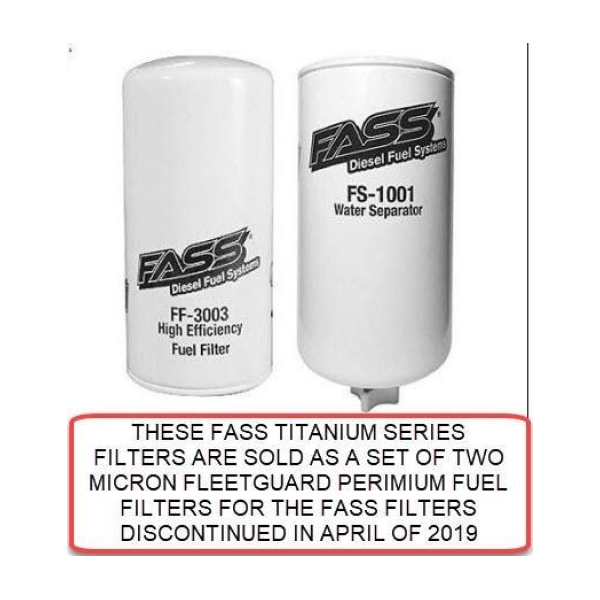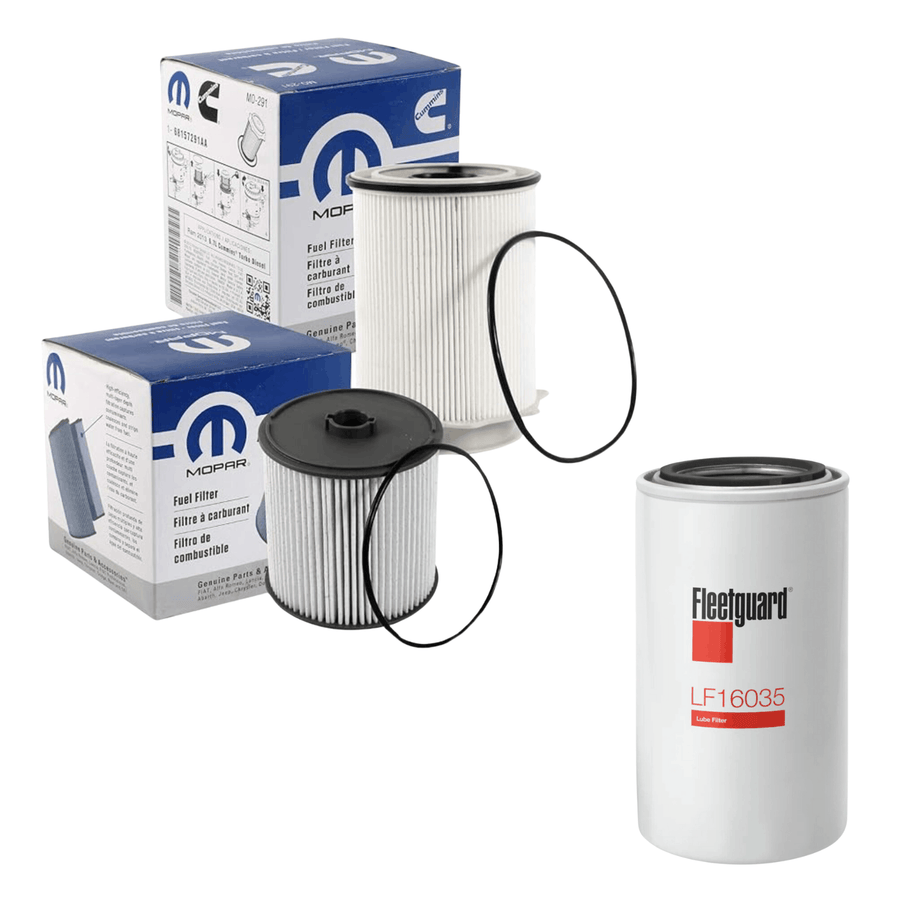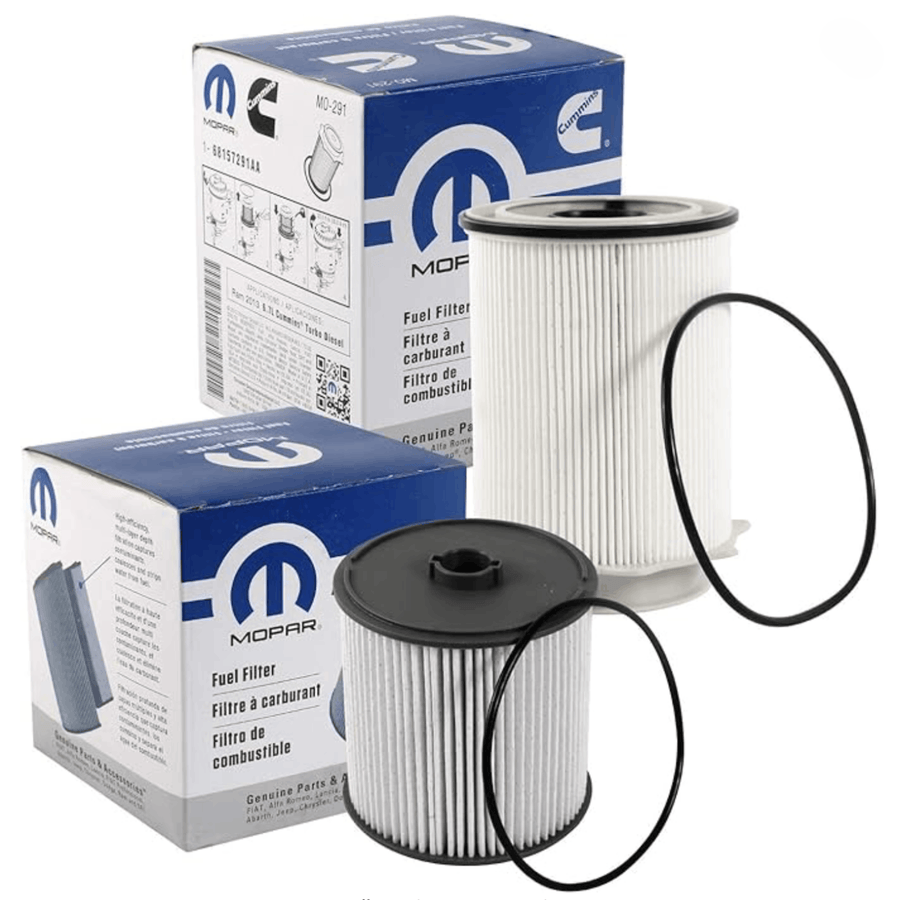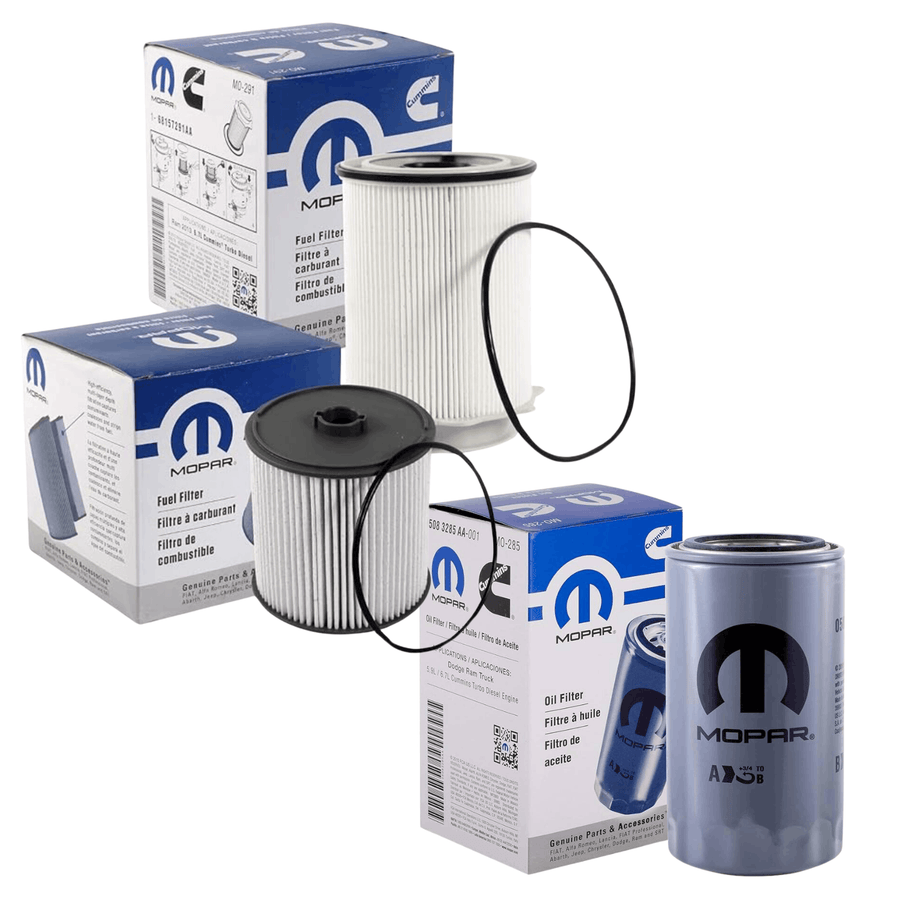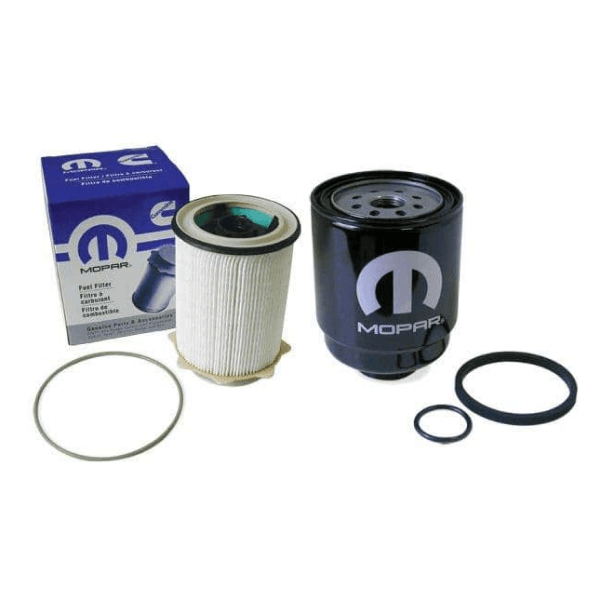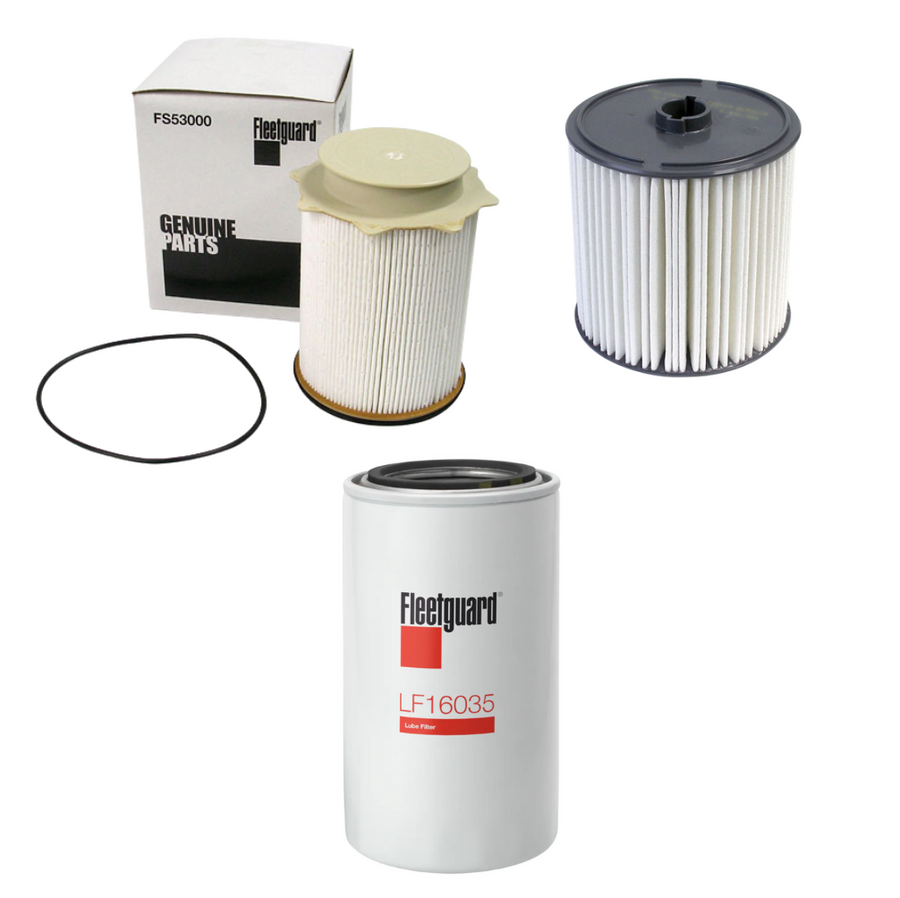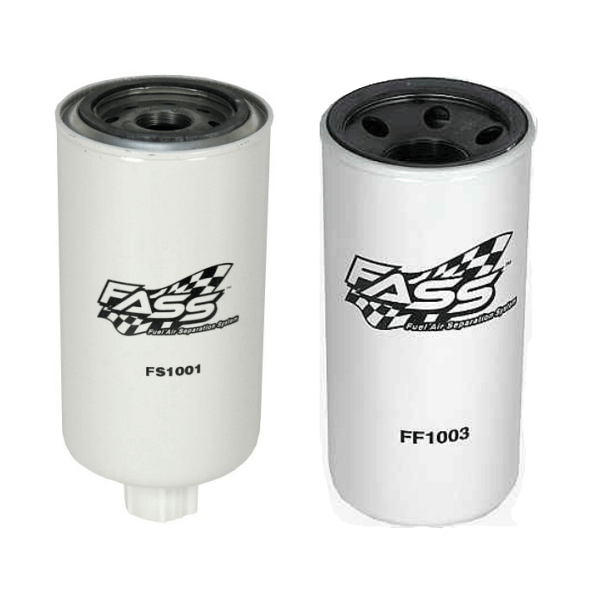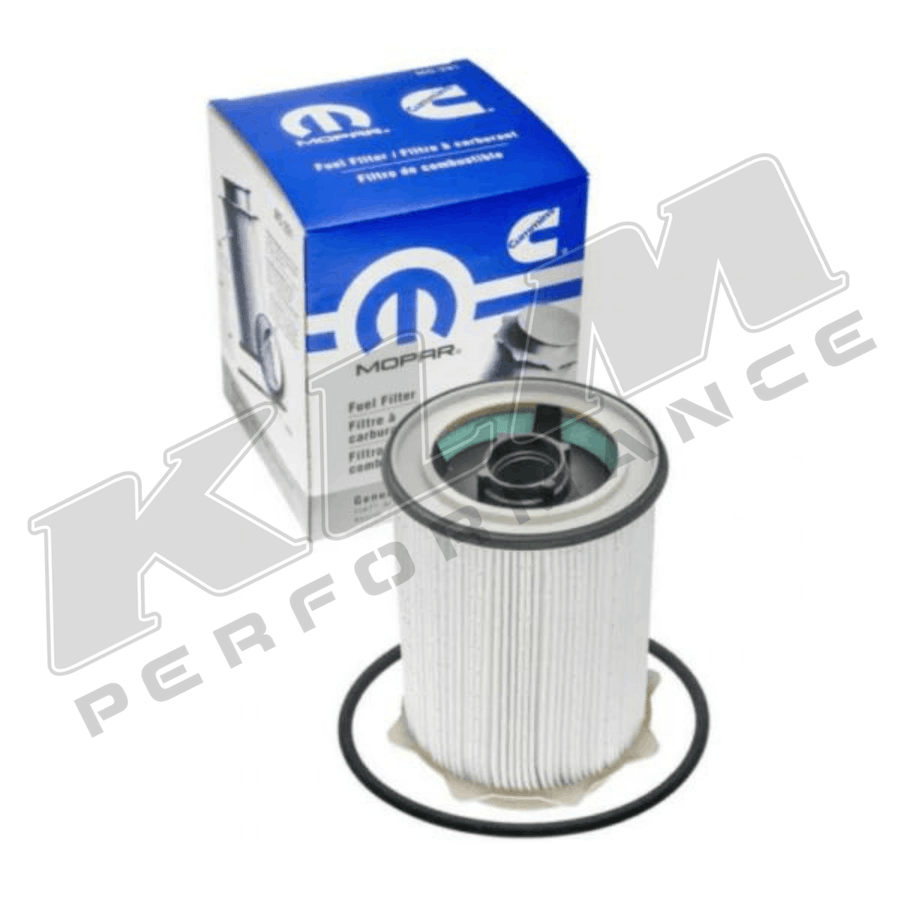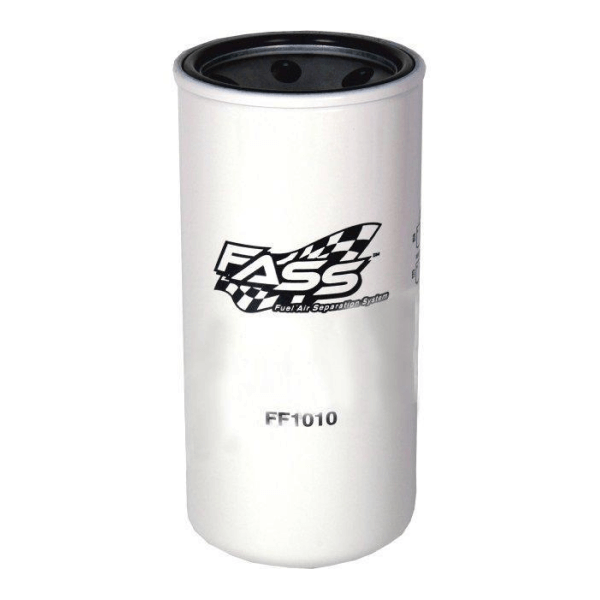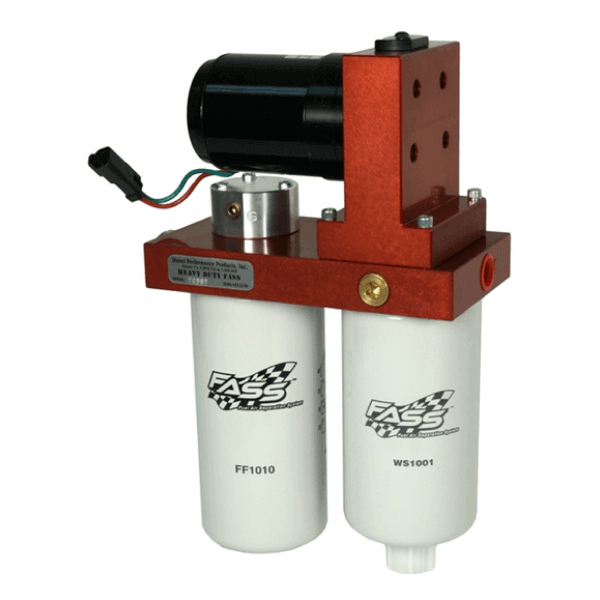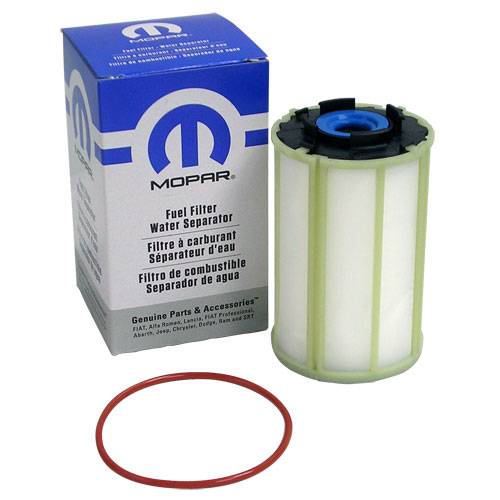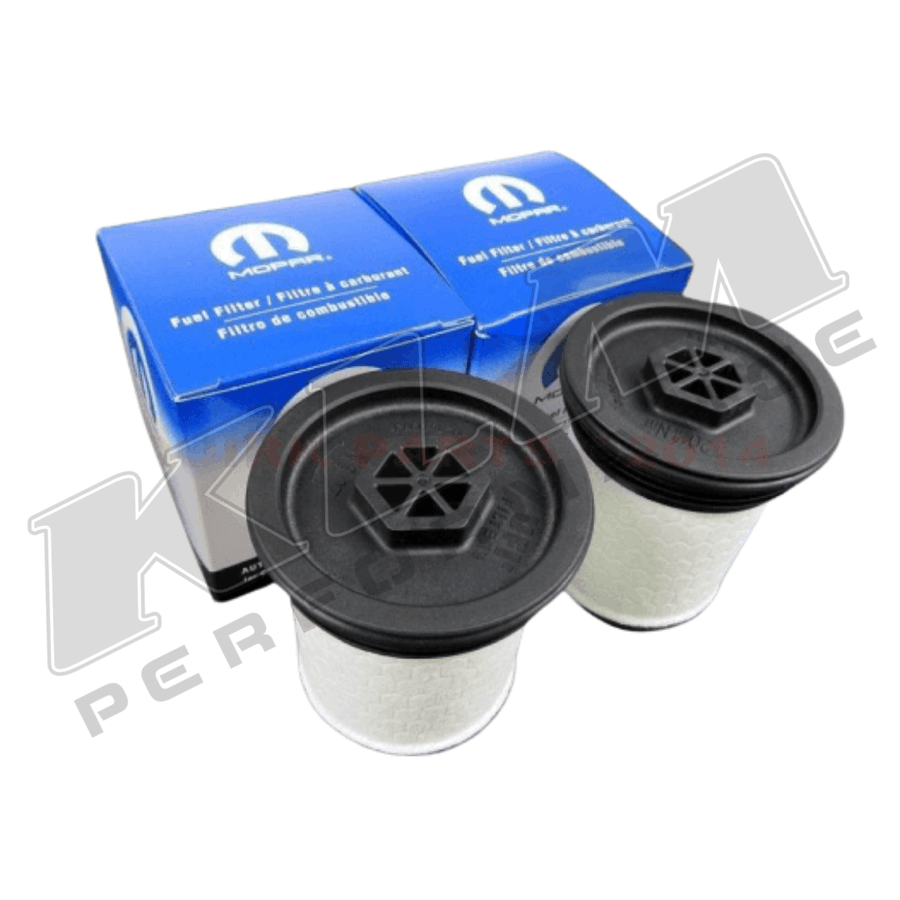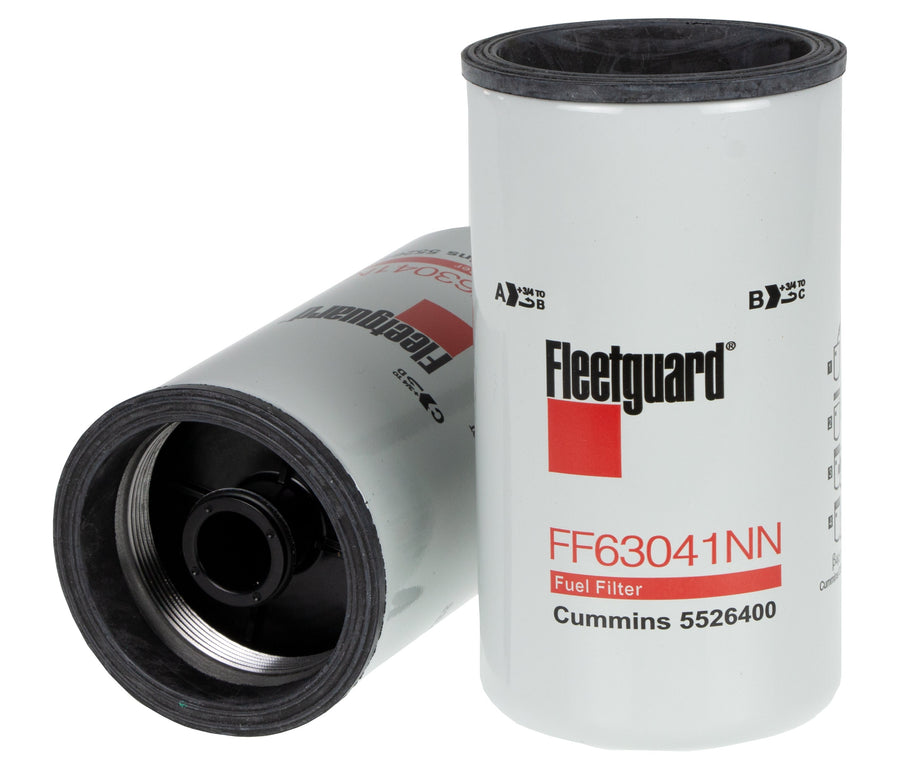Diesel Fuel Filtration
KLM Performance supplies premium quality diesel fuel filters and fuel water separators from FASS, AirDog, Fleetguard, and Mopar for use in your diesel engine. Diesel fuel is the liquefied fuel used in a diesel engine whose fuel ignition takes place as a result of compression of the incoming fuel-air mixture. Since the diesel engine does not use a spark as the source of ignition, it is vital that the fuel supplied to the engine must be properly filtered. Diesel Fuel contamination is the biggest enemy your engine faces. Diesel engines are popular due to their higher thermodynamic output and increased fuel efficiency.
What does a diesel fuel filter remove?
- Dirt, Rust, Debris, and Scale - By filtering your diesel fuel you prevented blockage of the fuel filter and increased wear rates of your engine fuel injection system.
- Suspended contaminants - Asphaltenes and paraffin n wax, which are residual components from the
The refining process will block screens, strainers, filters, and even hoses.
- Entrained Water or Emulsified Water - is the greatest concern because it is the most common contaminant in diesel fuel. Water can get into the fuel
during the refueling process: through condensation inside the fuel storage tank, or due to poor housekeeping practices. The effects of water in diesel fuel can be severe, causing injector tips to
blow off, corrosion, and reduced fuel lubricity, resulting in premature wear to pumps and injectors.
- Performance-enhancing chemicals
- By-products from the production of biodiesel
- Cold weather cloud and pour point depressants
Diesel Fuel filters are a vital part of today's diesel engines. Using a brand-name diesel fuel filter ensures a long trouble-free life. The diesel engine's high-pressure diesel fuel injection system works with very tight tolerances. Improperly Filtered or Unfiltered diesel fuel may contain several kinds of contaminants. By filtering your diesel fuel, you prevented blockage of the fuel filter and increased wear rates of your engine fuel injection system.
The more common types of contaminants found in diesel fuel are:
- Paint Chips.
- Rust
- Dirt that has been knocked into the tank while filling operations occur.
- Water
If these substances are not removed before the fuel enters the fuel injection system, rapid wear and failure of the fuel pump and injectors will happen. Diesel fuel containment's are very abrasive and must be removed from the diesel fuel supply by using the correct filter. Using the right Diesel Fuel filter also improves the performance of your engine. The cleaner the fuel provided to the engine the more efficient the combustion process becomes. These impurities can plug fuel injectors resulting in engine malfunction or deterioration of the fuel injection system components.
Diesel Fuel Filter Maintenance
Diesel Fuel filters need to be maintained at regular intervals. If a diesel filter is not replaced regularly, it may become clogged with contaminants and cause a restriction in the fuel flow, and diesel flow restrictions cause a drop in engine performance as the engine struggles to draw enough fuel to continue running normally.
How is the efficiency of a Diesel Fuel Filter rated?
Fuel Filters as evaluated on a basis referred to as a Micron Rating. A micron is a thousandth of a millimeter or a millionth of a meter or .000039 of an inch. Micron is the unit of measure used to determine the size of particles in a fluid that is filtered out by the filter. The lower the number, the more contaminants the diesel fuel filter is capable of removing.
What is the difference between Absolute and Nominal micron rating?
Micron rating is the size of particles that are filtered out by filters at an absolute efficiency. When this efficiency is at least 98.6%, we speak about absolute micron rating/filtration. Nominal micron rating is just a commercial trick for all efficiencies lower than 98.6%, meaning that for the same micron rating not all particles will be captured in the filter as in the case of absolute micron rating.
Why is there a need for improved filtration in modern diesel engines?
Diesel fuel filters with a lower micron rating provide greater removal levels of the water contained within today's diesel fuel. The water removal is provided through the use of a Fuel/Water Separator filter. Today's modern diesel engines produce higher power output than older engines which is achieved through the use of cleaner diesel fuel. This is controlled through the use of slow-release lubricity enhancing fuel filters. Today's diesel engines also have much tighter clearances between the moving parts and the very small nozzle holes found in injectors all need appropriate protection from abrasive wear which is achieved by using media with a tighter micron rating.
Please Contact Us if you need any more information on a Diesel Fuel Filter for your engine?
